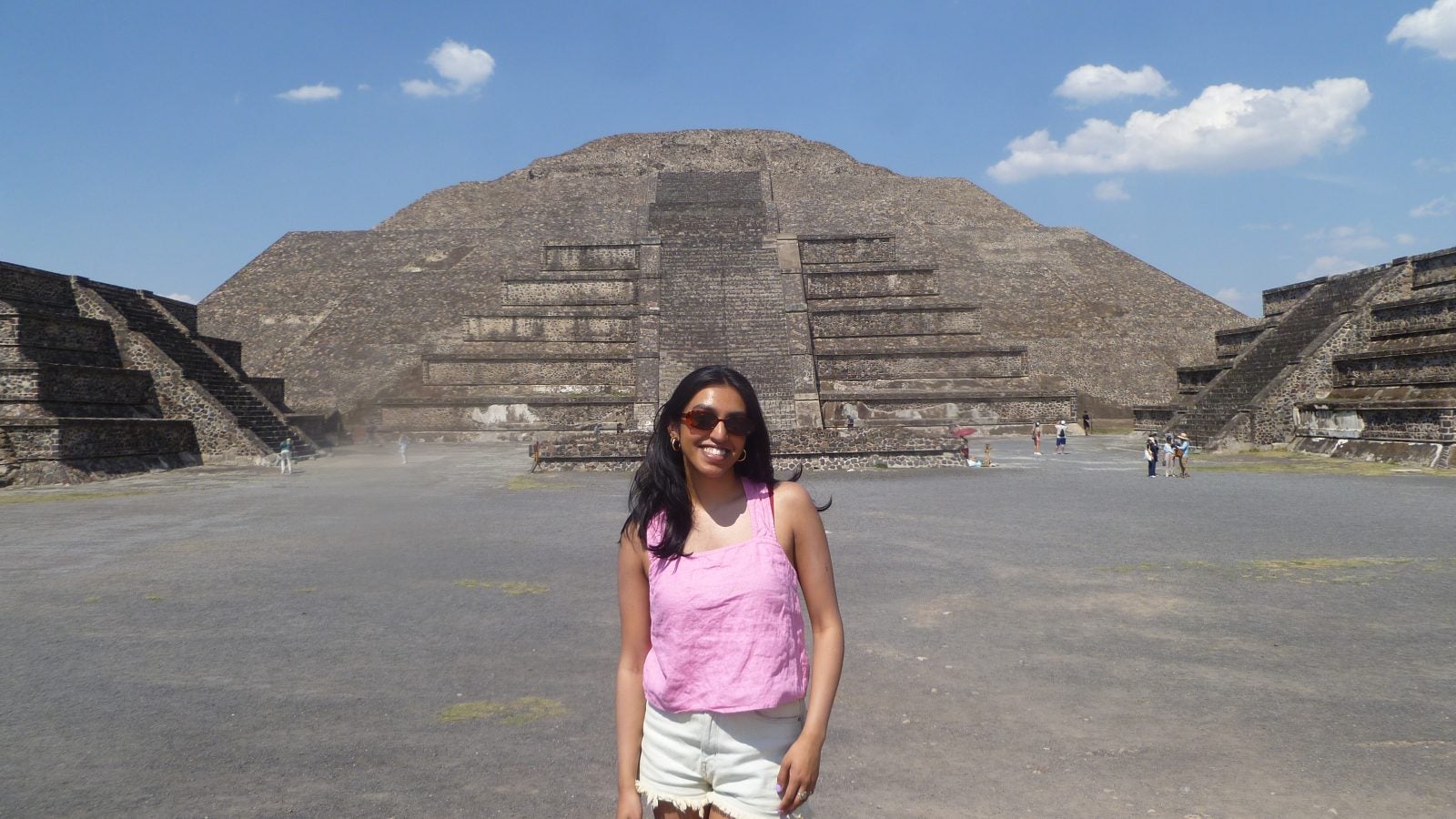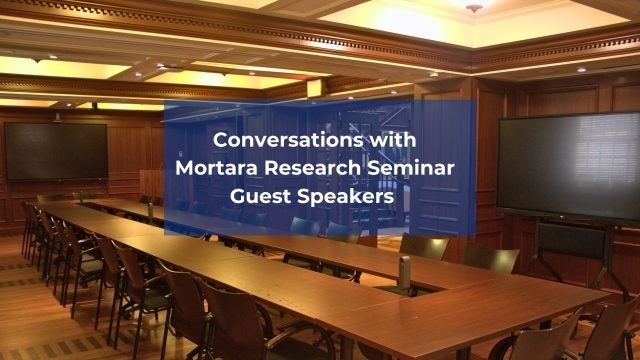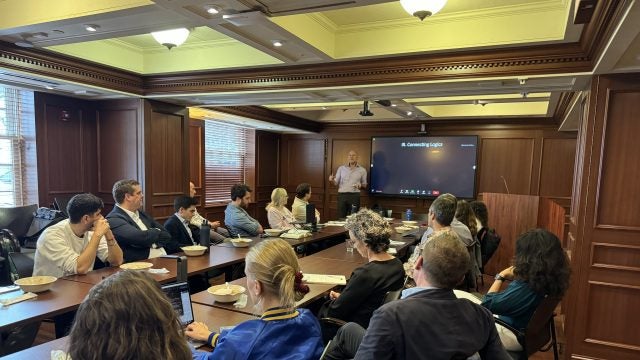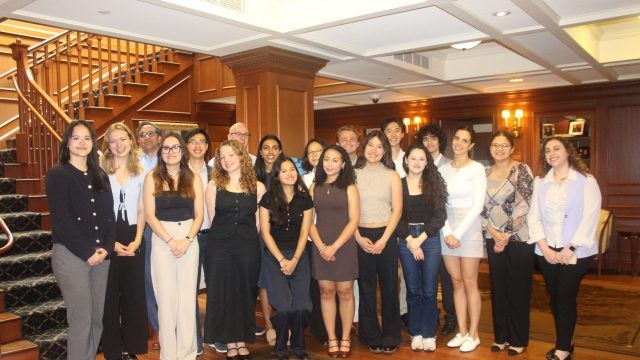Sanjana Ranganathan is a member of the Class of 2025 in the School of Foreign Service studying International Economics and Statistics. As a first-generation immigrant with most of her family living abroad, Sanjana has always been curious as to how social, political, and economic factors can affect international development. As a MURF, Sanjana assists Professor Raj Desani studying economic and community development in India and Somalia. On campus, she is involved in Georgetown Global Consulting, Georgetown University Eating Society, and Georgetown Bipartisan Coalition. In her free time, Sanjana enjoys hiking, reading, and making new Spotify playlists!
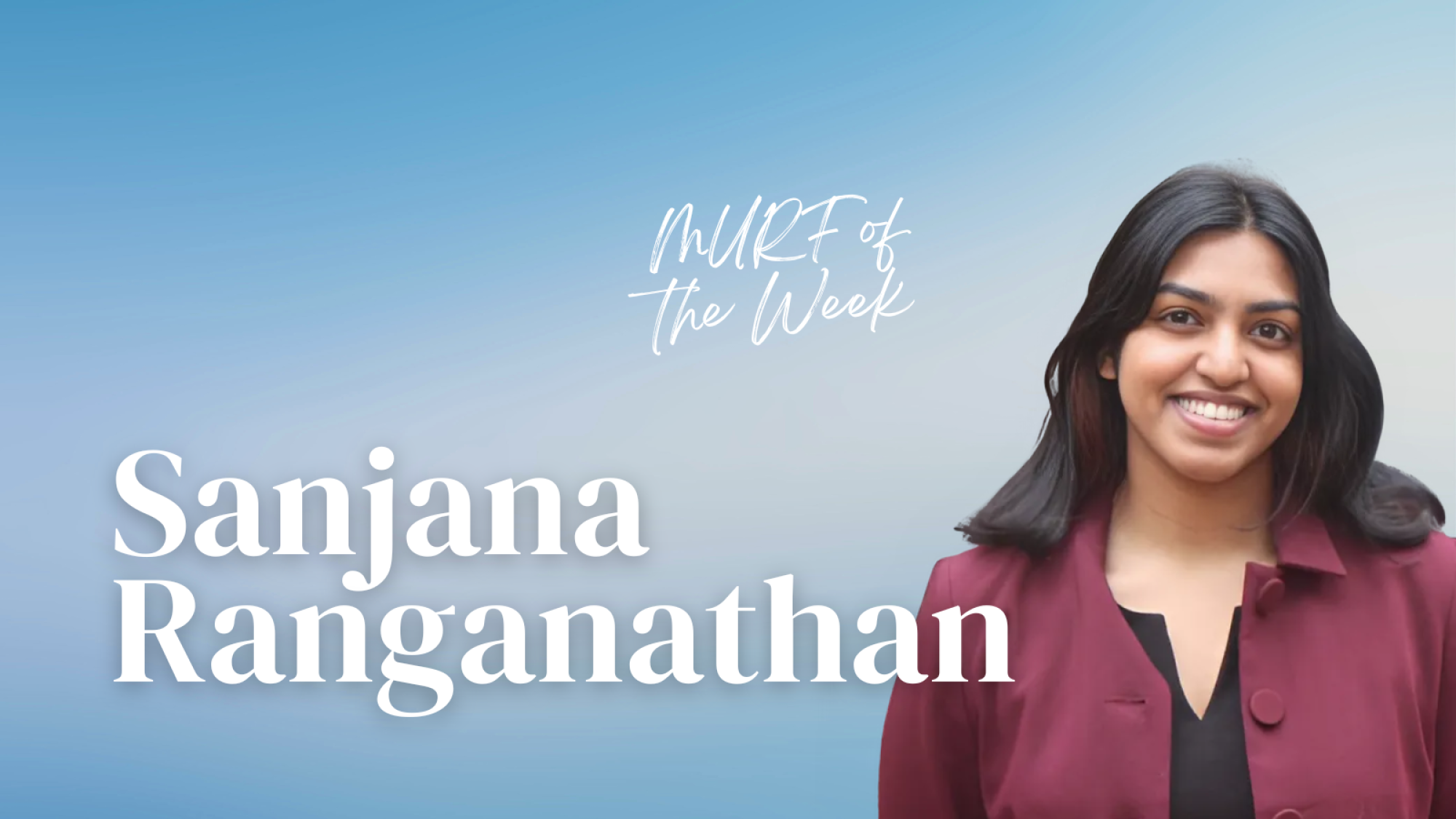
Category: MURF Program, News
Title: MURF of the Week: Sanjana Ranganathan
Date Published: April 16, 2025
-
What has been the most valuable part of your MURF experience?
I have really appreciated the opportunity to develop a close relationship with my professor Raj Desai. Beyond serving as my research mentor he has also helped me think about professional goals, grow my skills, and connect me to folks inside and outside of Georgetown. The MURF program offers such a unique chance to build a long-term relationship with a professor that truly surpasses the program’s scope.
-
How has MURF shaped your academic or career goals?
MURF has helped me gain a lot of transferable skills that I am confident will aid me in my career. As a research assistant I learned core data cleaning and management skills that now enable my senior thesis that draws on a range of quantitative methods and survey design. Only through the time and resources of the MURF program was I able to develop these skills that I am eager to bring to future roles. MURF has also allowed me to dive deeply into a single topic over the course of many years which has served me well when applying for jobs and internships.
-
What advice would you give to future MURFs?
I encourage future MURFs to take an interest in the work of their cohort and peers. I have learned so much from other MURFs, many of whom have such an infectious passion for their research. There are so many chances to create friendships with like-minded peers through the MURF program so I very much urge all MURFs to do so!
-
Tell us about a research project you worked on and what you learned from it.
My independent research project focuses on the effect of conflict memory on post conflict Sri Lanka. An interesting academic finding I have learned is that conflict memory is multidimensional. Individuals reported different levels of salience (how often they engaged with the conflict memory) and different perspectives on how the conflict legacy operated (whether it impacted their family, country, etc.) Depending on these two aspects, the independent variable of conflict memory impacted the dependent variable of political engagement in different ways. This finding is interesting as it suggests a more nuanced way to think about conflict memory that acknowledges multiple dimensions of memory rather than the pure, binary existence of memory.
-
What’s a memorable moment or challenge you faced as a MURF?
My first work as a MURF involved assisting Professor Desai with his research on village level governance in Northern India. We worked with an organization called Seva Mandir and after four years, they visited Georgetown last semester. It was so rewarding to welcome them to campus and meet individuals who I had met years ago at the start of my MURF journey. The experience felt very full circle and helped me reflect on how much I have learned through this program!
-
How has your research evolved over your time in the program?
My research has evolved to use new methods that I may not have originally considered. I began by wanting to conduct a qualitative investigation of memory. However, through my research assistant work with Professor Desai I became interested in survey design and saw it as an interesting, novel challenge. As I continued through Georgetown I learned statistical analysis skills through my coursework which further enabled a more quantitative method. While I initially felt intimidated by tackling the new challenge of survey design and administration, the MURF program offered me the mentorship and resources necessary to tackle an ambitious research project. In the process I have learned a significant amount while pursuing a project I am deeply passionate about.
-
What’s one thing you learned as a MURF that surprised you?
A random tidbit I learned while researching Sri Lanka is that many of the cars in the North are older car models. This reflects the lack of imports into the Northern region during parts of the Civil War. I found this an interesting example of conflict memory and how it can manifest in physical, observable forms.
-
Describe your MURF experience in three words.
Engaging, Stimulating, Challenging.
